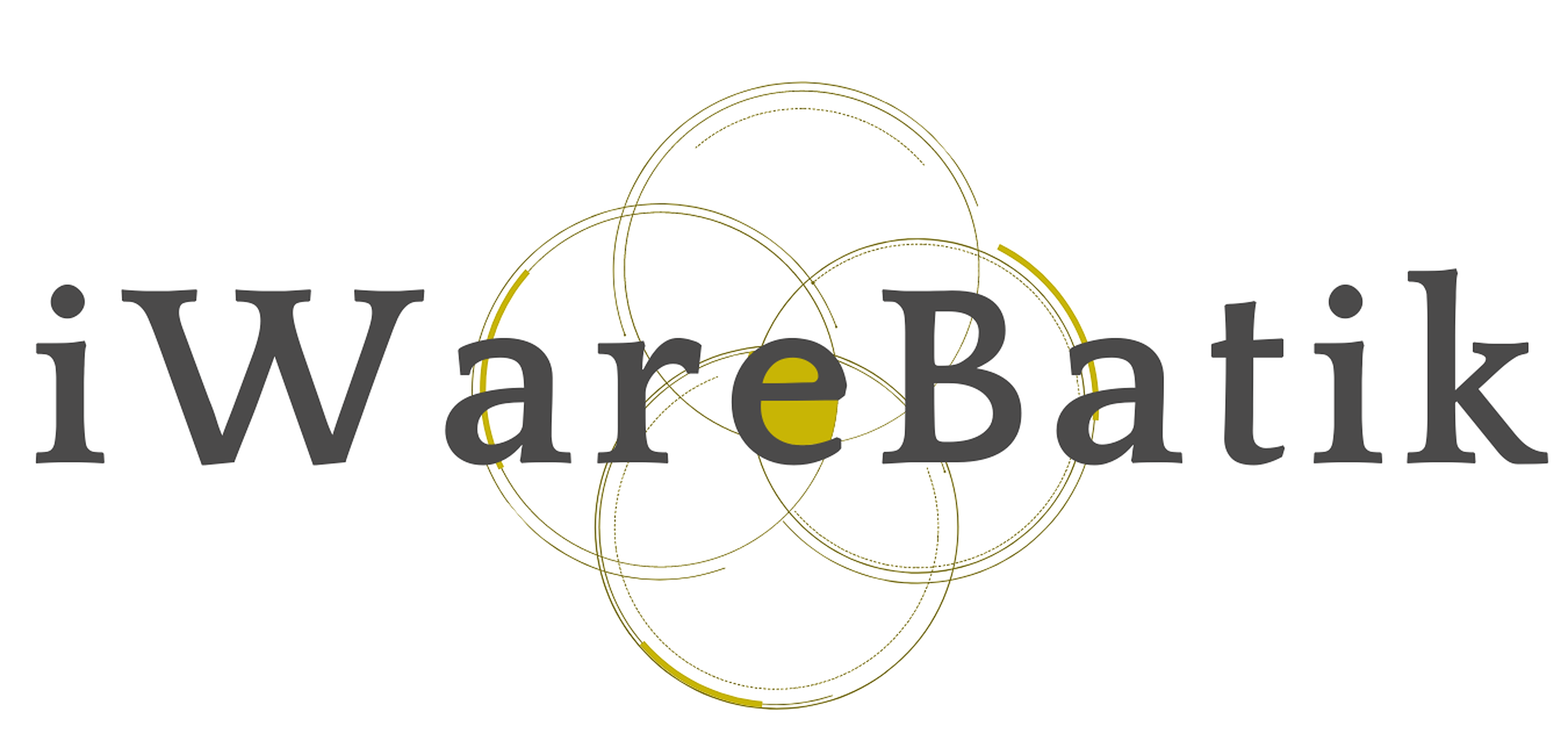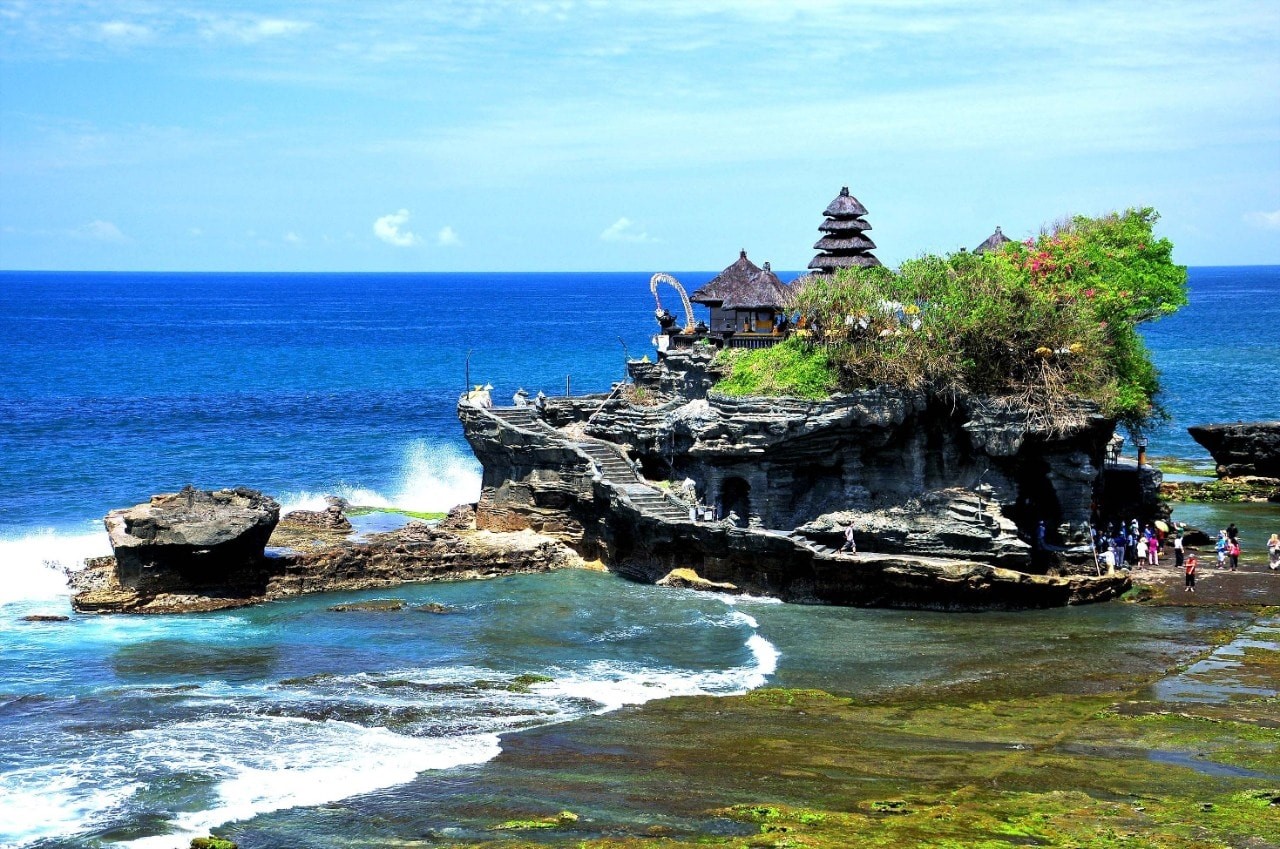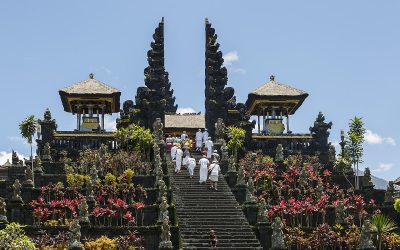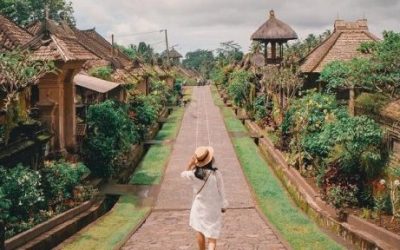Home / Batik Regions – Central Indonesia – Bali / Tanah Lot
Cultural Destination
Embrace the spirit of the place!
Tanah Lot Temple
Tanah Lot Temple is one of Bali’s most important landmarks, where you can enjoy a spectacular sunset landscape. Its unique offshore setting, the spirit of the place of ancient Hindu shrine offers you an unforgettable experience. Tanah Lot temple complex is surrounded by smaller shrines where you can visit and find the unique architecture of traditional Bali temples. It also hosts a cultural park that shows dance performances regularly. Tanah Lot temple is located in Beraban Village, Tabanan Regency, about 20 Km from Kuta beach and Denpasar city.
Tourist Attractions in Bali
Besakih Temple
Besakih Temple is regarded as Bali’s ‘Mother temple’ – a grand
Bedugul Ulun Danu Beratan Temple
an excellent place for having spiritual soul discovery
Penglipuran Village
Penglipuran Village is awarded as the 3rd most beautiful and cleanest village in the world
Bali
Batik Motifs
Merak Abyorhokokai
The peacock batik motif depicts the bird’s beauty as the focal point of
Buketan Bali
The Balinese bouquet (Buketan Bali) is a floral arrangement and the name is
Discover
Indonesian
Batik
Motifs
Dayak Taghol
Dayak Taghol has a distinctive style of four curved lines and small dots. This motif represents
Ukir Sentani
The Ukir motif is a batik motif that is inspired by various traditional Sentani wood carvings
Pati-Pati Pinehiku
It symbolizes the hierarchy in society and the social status of the Mekongga
Gamolan
This motif illustrates Gamolan, a bamboo musical instrument of Lampung that is
Gumin Tambun
Based on Hindu mythology, this motif symbolizes lucks, abundant wealth, and
Jumputan Bintang
The word Jumputan means the tie-dye technique, while the word “Bintang” refers to
Burung Bidadari
Bidadari birds are endemic birds in Halmahera. This motif represents an
Keluak Daun Pakis
The word “Keluak” is a Minang language which means twisted or tangled. The Motif of
Raja Ampat
Raja Ampat motif represents the marine life at Raja Ampat archipelago in
Angsa Duo
According to legend, the Angso duo batik motif is a pair of swans that are believed to have led Princess
Kerawang Tegak Aceh
The Vertical Upright (Kerawang Tegak) Motif symbolizes a person who has a strong
Cengkeh
The clove flower motif is the main commodity of the Tolitoli Regency. This motif represents
Tenun Bima
The motifs are adopted from Bima woven textile. This pattern has received a great
Parang Rusak
Another meaning behind this motif is an unconquerable spirit, symbolized by
Gigi Haruan Lidi
The Gigi Haruan Lidi motif is taken from the name of the cork fish and is a symbol of
Kaganga Tanah Rejang
If Batik Besurek combines Arabic calligraphy motifs, then the Kaganga batik takes
Mahkota Siger
Siger is the crown of a noblewoman in ancient time. It is a symbol of femininity, strength, and
Ikan tambal
The word “Ikan” refers to fish. The philosophical meaning of Ikan Tambal means is
Pinawetengan
The Pinawetengan Batik pattern was taken from a prehistoric inscription in
Bultiya
The word ‘Bultiya’ is an acronym of the three major tribes in North Kalimantan, namely
Gonggong Siput
Gonggong (Strombus Turturella) is one type of sea snail found around
Srimanganti
The name of the Srimanganti motif is derived from Palace’s hallway that connects to
Sandeq
Sandeq Boat is a symbol of the maritime importance of the West Sulawesi region. The greatness of
Prada Papua
The word “Prada” in the Javanese-Indonesian dialect means a batik textile that
Tangerang Herang
Tangerang Herang motif is a symbol of Tangerang city. The Tangerang Herang batik motif consists of
Awan Berarak
Awan Berarak is a combination of Dayak motifs and Malay patterns. The word ‘Awan Berarak’ means the
Manguni Minahasa
Manguni is identified as the symbol of the Minahasa people. Manguni is known as a
Karawo Mahkuta
Mahkuta refers to Gorontalo’s traditional crown. It represents noble characters of
Tifa Totobuang
The batik motifs illustrate Maluku’s traditional music instrument called
Lok Baintan Floating Market
As you can imagine, the most authentic thing is that you can buy things and even
Besurek Rafflesia
The term “Basurek” refers to a textile that contains letters or inscriptions
Pucuk Rebung Riau
Pucuk Rebung symbolizes heart determination in achieving goals, good luck, and
Jupri Kembang Teh
Kembang Teh illustrates the tendrils of tea plants that grow in the highlands of
Kasih Tak Sampai
‘Kasih Tak Sampai’ is an idiom in the Indonesian language which refers to
Lontara
The Lontara script itself is a typical ancient script of Bugis and Makassar communities. History records that
Gurdo Solo
Gurdo or garuda bird is the mount of the Indian god Vishnu. As the Sun Bird,
Biji Kopi
The coffee seeds motif illustrates the pride of local coffee specialities in
Bintik Tujuh
The Bintik Tujuh (Seven Dots) motif has 7 white spots and green color gradation as
La Galigo
La Galigo is a literary work of the Buginese Epic that has 300 thousand epic lines. It is considered even
Pohon Hayat (Tree of Life)
The Batik motifs in Lampung are dominated by the acculturation of Buddhist and
Tikar Natuna
The Tikar Natuna motif is adapted from the traditional making of pandanus mats in
Besurek Rembulan
This batik illustrates praise for God who created the wonderful universe
Daun Simpor
This motif is inspired by the Simpor plant (Dillenia Suffruticosa) which is a typical
Kuda Kupang
Horses symbolize wealth. It contains noble values of virtuous characters that bring
Leuit Sijimat
This motif reflects the daily activities of the Baduy tribe in Banten. The main ornaments of batik motif consist of:
Kain Cual
Cual textile tradition has existed since the 17th century. The word “Cual” refers to
Karawo Pinang
Pinang refers to the Palm areca tree. This motif is considered as the original
Bekantan Pakis
This motif represents Pakis Haji (Polystichum setiferum), an endemic plant in
Sido Mulyo
Sidomulyo is one of the classical motifs, which is specifically used for the bride’s costume in
Singayaksa
The Singayaksa motif comes from the name of a place where Sultan Hasanuddin used to
Tongkonan
Toraja’s traditional house is called Tongkonan. Tongkonan is a place for
Ake Patra
Ake is related to the divinity and the composition of the universe. It is a symbol of
Tabir Tanjung
Tanjung flower is a type of Cherry tree flower, which is commonly found in
Sekomandi
Its philosophical meaning is the eternal union which refers to a saying “until death do us part”
Wirasat
Wirasat or divine inspiration is a gift from God. This inspiration is symbolized by
Bale Lumbu
This motif signifies the welfare of the ancient Sasak society. Bale also symbolizes the
Malinau Cultural Festival
You will witness a unique competition that might not be found other than in
Kawung
The Kawung motif was created by Sultan Agung Hanyokrokusumo (1593 – 1645) as a symbolic gift for
Desa Na Tolu
The Desa Na Tolu characteristic pattern symbolizes the Batak philosophy of existence and
Gajah Way Kambas
The motif illustrates the Lampung’s natural reserve, the Way Kambas. it also symbolizes
Dayak Kamang
Kamang motif is generally found in the Dayak tribe shield because it is believed to
Parang Seling
Parang Seling or “alternating daggers” is a royal batik motif. It is a feminine variant of
Rumah Mamuju
the Batik motif illustrates the house of Mamuju King with the stairs, located on the left of the wooden stage house
Pattimura
Pattimura is the name of an Indonesian hero who fought against colonialism in
Gonggong Beruntun
This motif illustrates that a person should maintain a positive attitude and
Kaharingan
The Kaharingan or ‘tree of life’ based on the Dayak tribes’ belief system. This tree symbolizes
Taiganja
Taiganja is a precious gold pendant that shows the social status of the Kaili family. It is
Pala Salawaku
This motif illustrates the unique weapons of the Maluku region, namely
Daun Lada Hitam
The black pepper motif represents the main commodity of Bangka Belitung
Sekar Jati
Sekar means flower and Jati refers to teak trees that symbolizes a strong mental character that
Gedhog Kembang Waluh
a combination of Javanese cultural motif of the Majapahit kingdom (XII-XIV century) with




